Tag Archive for: Irrigation
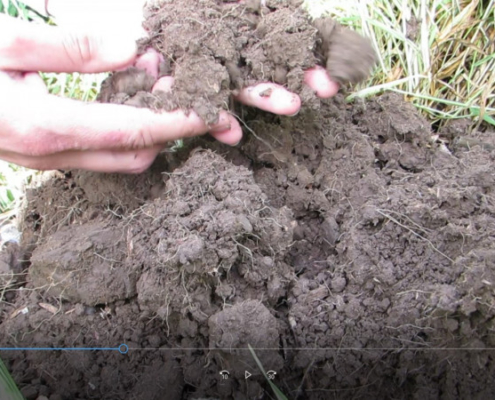
Soil Health and Composting with Nina Prater and Matt Casteel
In this webinar, Nina Prater, and NCAT Sustainable Agriculture…

Reflections on NCAT’s First Soil Health Innovations Conference
Everyone has their “thing”—that topic or interest that they just can’t get enough of. That topic that you bore people with at parties (remember parties?) when you talk about it just a little too long. For me, my “thing” is soil. I find the topic of soil so endlessly fascinating, and I get to think about, talk about, teach about, and play with soil as a job and a way of life. I’m lucky enough to be a soil specialist for NCAT and I live on a family farm.
By Nina Prater, NCAT Sustainable Agriculture Specialist
By Nina Prater, NCAT Sustainable Agriculture Specialist
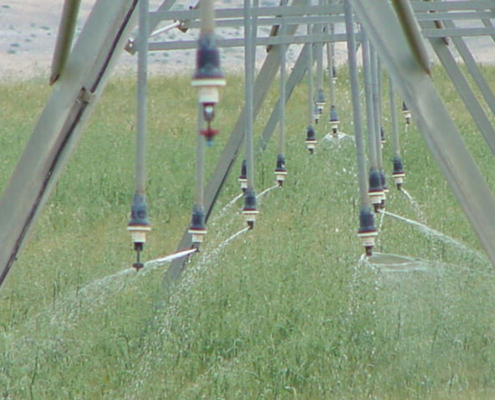 https://attra.ncat.org/wp-content/uploads/2023/03/nozzles.jpg
750
1000
NCAT IT
/wp-content/uploads/2022/06/ATTRAlogo_RGB-340x156.png
NCAT IT2021-03-09 10:30:552023-12-19 14:36:12Measuring and Conserving Irrigation Water
https://attra.ncat.org/wp-content/uploads/2023/03/nozzles.jpg
750
1000
NCAT IT
/wp-content/uploads/2022/06/ATTRAlogo_RGB-340x156.png
NCAT IT2021-03-09 10:30:552023-12-19 14:36:12Measuring and Conserving Irrigation Water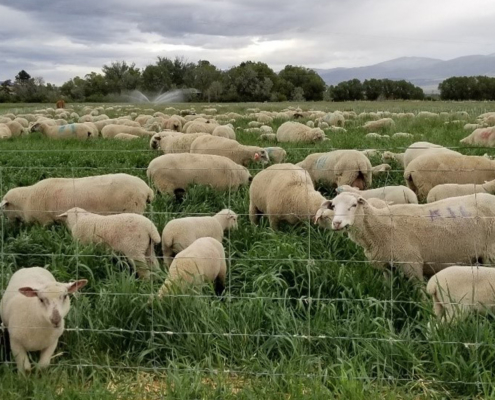
Buz Kloot: Seven Words that Sparked a Change
In 2013, Montana Highland Lamb had finally come to the conclusion that we were spending way too much on fertilizer for our irrigated pastures. Sure, they were producing more than six tons of grass dry matter per acre, but for what? We were not realizing any profit—the fertilizer manufacturer was. Somehow, we had to escape the immense gravitational bondage of more and more inputs. But how?
By Dave Scott, NCAT Livestock Specialist and Co-Owner of Montana Highland Lamb
By Dave Scott, NCAT Livestock Specialist and Co-Owner of Montana Highland Lamb
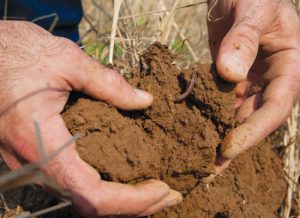
Putting Your Garden to Rest: Soil Health Virtual Workshop
In this virtual workshop, NCAT Soil Specialist Nina Prater and…
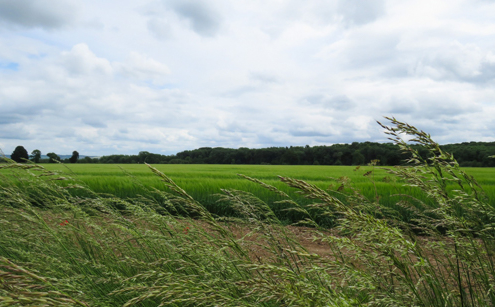
Episode 176. Starting a Farm: Water Issues
This week’s episode of Voices from the Field is part of an…
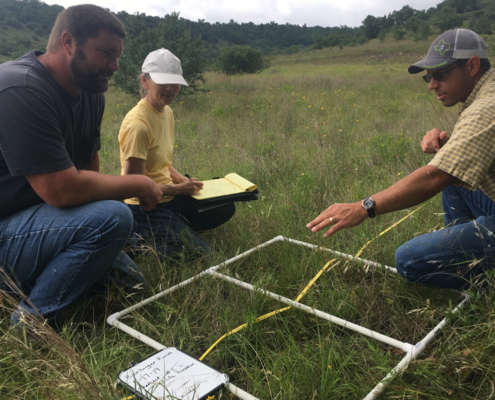
Test Driving the New LandPKS Land Monitoring App
In my work on NCAT’s Soil for Water Project, I’ve tried a lot of different ways of monitoring land and soil health. For years, I’ve been hearing about LandPKS (Land Potential Knowledge System), a mobile app that has been under development by the USDA Agricultural Research Service (ARS) since 2013. I was excited to hear that a full version was released earlier this year, and a couple weeks ago I finally got around to installing the app on my phone and running it through some tests.
By Mike Morris, Director of NCAT’s Southwest Regional Office
By Mike Morris, Director of NCAT’s Southwest Regional Office
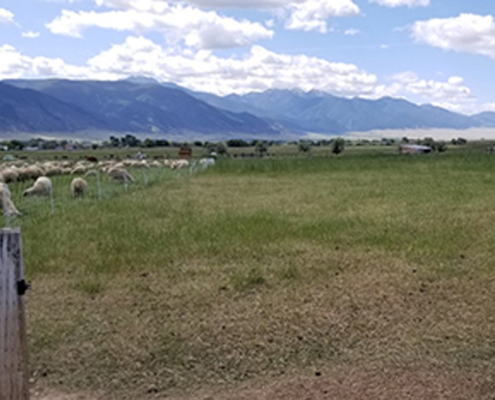
Overgrazing and the Maturing of an Adaptive Grazing Thought Process
Close to 20 years ago, we noticed a discouraging event slowly unfolding on our pivot-irrigated pasture of 12 acres: The first 120 feet of the pasture starting from the pivot point was producing less and less grass in comparison to the remaining perimeter of the pivot.
By Dave Scott, NCAT Livestock Specialist
By Dave Scott, NCAT Livestock Specialist
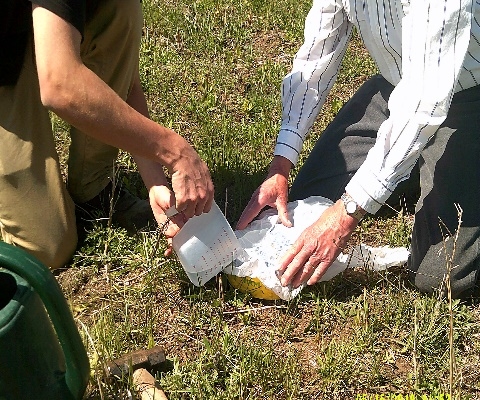
Infiltration Ring with Ray Archuleta
In this video, Ray Archuleta of the Soil Health Academy and Understanding…
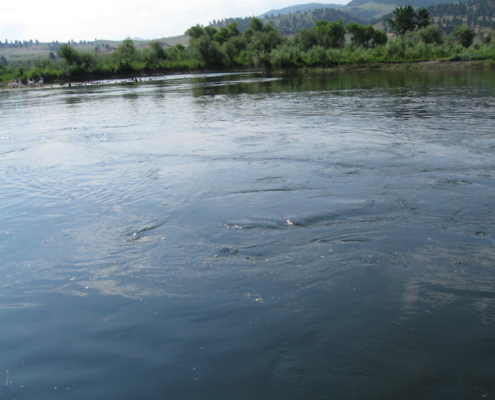 NCAT
NCATPayments for Ecosystem Services. Part 3. Water Quality Trading
This webinar hosted by NCAT Sustainable Agriculture Specialist…
Tag Archive for: Irrigation

Soil Health and Composting with Nina Prater and Matt Casteel
In this webinar, Nina Prater, and NCAT Sustainable Agriculture…

Reflections on NCAT’s First Soil Health Innovations Conference
Everyone has their “thing”—that topic or interest that they just can’t get enough of. That topic that you bore people with at parties (remember parties?) when you talk about it just a little too long. For me, my “thing” is soil. I find the topic of soil so endlessly fascinating, and I get to think about, talk about, teach about, and play with soil as a job and a way of life. I’m lucky enough to be a soil specialist for NCAT and I live on a family farm.
By Nina Prater, NCAT Sustainable Agriculture Specialist
By Nina Prater, NCAT Sustainable Agriculture Specialist
 https://attra.ncat.org/wp-content/uploads/2023/03/nozzles.jpg
750
1000
NCAT IT
/wp-content/uploads/2022/06/ATTRAlogo_RGB-340x156.png
NCAT IT2021-03-09 10:30:552023-12-19 14:36:12Measuring and Conserving Irrigation Water
https://attra.ncat.org/wp-content/uploads/2023/03/nozzles.jpg
750
1000
NCAT IT
/wp-content/uploads/2022/06/ATTRAlogo_RGB-340x156.png
NCAT IT2021-03-09 10:30:552023-12-19 14:36:12Measuring and Conserving Irrigation Water
Buz Kloot: Seven Words that Sparked a Change
In 2013, Montana Highland Lamb had finally come to the conclusion that we were spending way too much on fertilizer for our irrigated pastures. Sure, they were producing more than six tons of grass dry matter per acre, but for what? We were not realizing any profit—the fertilizer manufacturer was. Somehow, we had to escape the immense gravitational bondage of more and more inputs. But how?
By Dave Scott, NCAT Livestock Specialist and Co-Owner of Montana Highland Lamb
By Dave Scott, NCAT Livestock Specialist and Co-Owner of Montana Highland Lamb

Putting Your Garden to Rest: Soil Health Virtual Workshop
In this virtual workshop, NCAT Soil Specialist Nina Prater and…

Episode 176. Starting a Farm: Water Issues
This week’s episode of Voices from the Field is part of an…

Test Driving the New LandPKS Land Monitoring App
In my work on NCAT’s Soil for Water Project, I’ve tried a lot of different ways of monitoring land and soil health. For years, I’ve been hearing about LandPKS (Land Potential Knowledge System), a mobile app that has been under development by the USDA Agricultural Research Service (ARS) since 2013. I was excited to hear that a full version was released earlier this year, and a couple weeks ago I finally got around to installing the app on my phone and running it through some tests.
By Mike Morris, Director of NCAT’s Southwest Regional Office
By Mike Morris, Director of NCAT’s Southwest Regional Office

Overgrazing and the Maturing of an Adaptive Grazing Thought Process
Close to 20 years ago, we noticed a discouraging event slowly unfolding on our pivot-irrigated pasture of 12 acres: The first 120 feet of the pasture starting from the pivot point was producing less and less grass in comparison to the remaining perimeter of the pivot.
By Dave Scott, NCAT Livestock Specialist
By Dave Scott, NCAT Livestock Specialist

Infiltration Ring with Ray Archuleta
In this video, Ray Archuleta of the Soil Health Academy and Understanding…
 NCAT
NCATPayments for Ecosystem Services. Part 3. Water Quality Trading
This webinar hosted by NCAT Sustainable Agriculture Specialist…
